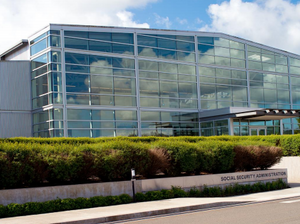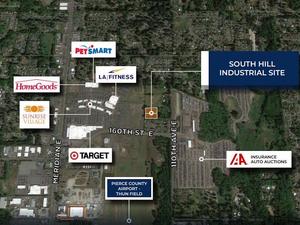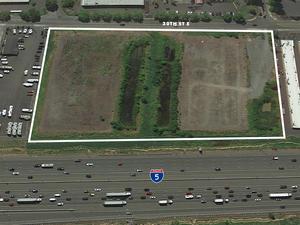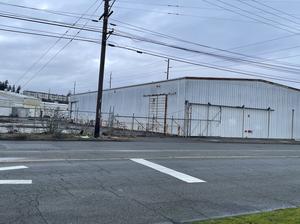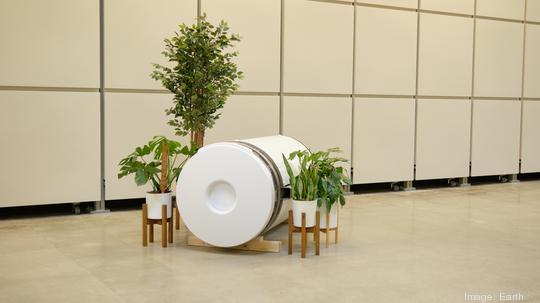
Auburn-based funeral company Earth wants to change people's end-of-life plans.
The company, which opened its 17,000-square-foot human composting facility in Auburn during the first quarter, announced earlier this month that its services have launched in Washington. In addition to providing a more environmentally friendly alternative to cremation and burials, Earth has created a website designed to make the whole funeral experience easier to navigate.
"What we've done that's really unique is we've built a family portal, through which you can manage all these arrangements in one place online and in collaboration with family members," said Tom Harries, co-founder and CEO at Earth. "No one is building software like this in the industry."
Earth uses composting "vessels" that control heat, air flow and moisture. Combined with organic mulch and wood chips, Harries said the company can compost a human body in 30 days. According to the company, Earth's process is carbon neutral, and its facility uses 100% renewable energy. Loved ones can choose how much of the soil they would like to keep, while the rest is sent to a conservation site near Quilcene on the Olympic Peninsula.
Harries said Earth's services costs $5,000, which is not the cheapest option but is far less expensive than many burial services, which can cost tens of thousands of dollars. People planning ahead can lock in that price now to protect against price increases and future inflation. Earth was founded in 2020, and Harries said the company has been doing research and development before officially launching this year.
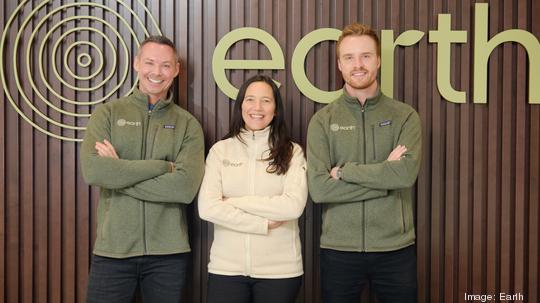
Earth's services are designed to attract eco-conscious customers. According to the company, the average cremation produces the same amount of carbon as a 600-plus-mile car journey. Burials, meanwhile, put harmful metals and concrete in the ground, Harries noted.
Oregon and Colorado allow human composting, in addition to Washington. Harries said Earth plans to launch in Oregon in the next couple of weeks. The Auburn facility currently holds 78 composting vessels but has capacity for up to 200. As for expanding its physical footprint, Harries said Earth will address that when there is a need. He added that the company has 13 full-time employees and about the same number of contractors.
Human composting is becoming an increasingly crowded space in Washington. Seattle-based Recompose, for example, was founded in 2017, while Return Home is another human composting company headquartered in Auburn.
Earth currently offers its services directly to consumers through its website, but Harries said the plan is to eventually partner with funeral homes.
"The beauty of soil transformation is that it coexists with every existing funeral ritual," Harries said. "We are not saying to people you need to change the way you've always done this. We're saying we have a better version of cremation."
